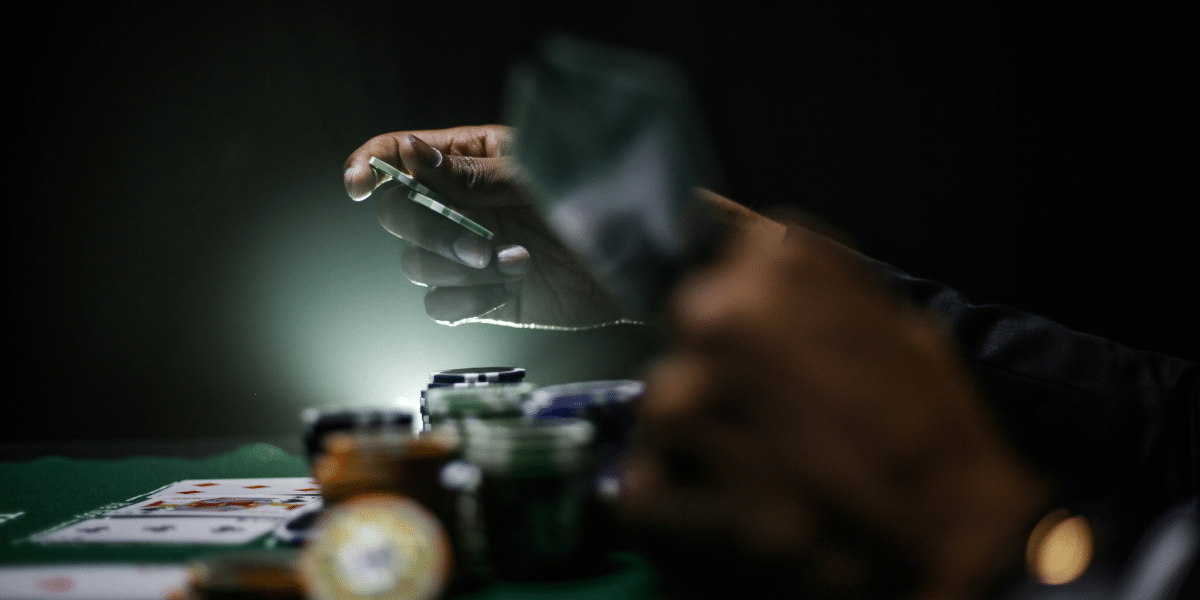Image commercially licensed from Unsplash
In a move to address the growing concern of problem gambling, New York’s Responsible Play Partnership has recently introduced significant changes to its voluntary self-exclusion program. This initiative, spearheaded by the New York Council on Problem Gambling, the State Office of Addiction Services and Supports and the state Gaming Commission, aims to streamline the process of identifying and assisting individuals who use NY betting apps and dealing with gambling problems. With an estimated 5 percent of New York adults at risk or already facing gambling-related issues, these changes come at a crucial time for the state.
Improved Self-Exclusion Process
The voluntary self-exclusion process allows individuals struggling with gambling problems to bar themselves from entering any gambling establishment or participating in any form of gambling activity across the state. The recent changes to the process focus on making it more accessible and effective. Among the notable improvements is the introduction of a free support program by the council, designed to help people recognize problem gambling and navigate the self-exclusion process.
The council’s staff will be present at licensed gaming facilities to assist individuals with the necessary paperwork, explain the self-exclusion process and connect them with treatment providers, counseling resources and peer support. James Maney, the council’s executive director, emphasized the importance of breaking down barriers and providing care and concern to those in need.
Online Notary Services and Streamlined Forms
Recognizing the need for convenience, the council has also launched online notary services to simplify the completion and submission of self-exclusion forms remotely. This enhancement aims to remove any logistical hurdles that may prevent individuals from seeking help promptly. By leveraging technology, the Responsible Play Partnership ensures that the self-exclusion process becomes more user-friendly and widely accessible.
Additionally, the introduction of online notary services signifies a forward-thinking approach to accessibility, acknowledging the diverse ways individuals may prefer to engage with the self-exclusion process. This digital innovation aligns with the broader trend of integrating technology into support services, ensuring that individuals can initiate and complete the self-exclusion process with greater ease and efficiency.
Prevention Strategies and Support Services
Chinazo Cunningham, commissioner of the state addiction services office, highlighted the preventative nature of voluntary self-exclusion, citing it as an effective strategy to reduce gambling harms. The new support program not only facilitates the completion of the self-exclusion process but also provides an avenue to connect individuals with local problem gambling community support services provided by the Office of Addiction Services and Supports (OASAS).
Data and Expansion
The OASAS, which funds the problem gambling council, conducted a 2020 survey revealing that 4.4 percent of New York adults are at risk of developing a gambling problem. Another 0.7 percent already meet the criteria for having a gambling problem or disorder. These statistics underscore the urgency of implementing effective measures to address the issue.
New York experienced a significant surge in gambling activities during the first year of legalized mobile sports betting, with over $16 billion wagered. This surpassed initial predictions, bringing in $709.2 million in taxes, exceeding the expected $500 million in tax revenue for the first year. As the state continues to see an expansion in casinos, with more slated to open in the coming years, the Responsible Play Partnership’s changes to the self-exclusion process align with the need for proactive measures to tackle problem gambling.
Challenges and Oversight
However, these positive developments come against a backdrop of challenges. The state’s Gaming Commission has faced an increased number of complaints filed with the state inspector general’s office, which took over the handling of the commission’s internal investigations two years ago. While some complaints target the commission’s activities, many are directed at the organizations it regulates. This underscores the importance of ongoing oversight to ensure the effectiveness and integrity of initiatives like the revamped self-exclusion program.
Online Notary Services and Streamlined Forms
Recognizing the need for convenience, the council has also launched online notary services to simplify the completion and submission of self-exclusion forms remotely. This enhancement aims to remove any logistical hurdles that may prevent individuals from seeking help promptly. By leveraging technology, the Responsible Play Partnership ensures that the self-exclusion process becomes more user-friendly and widely accessible.
Additionally, the introduction of online notary services signifies a forward-thinking approach to accessibility, acknowledging the diverse ways individuals may prefer to engage with the self-exclusion process. This digital innovation aligns with the broader trend of integrating technology into support services, ensuring that individuals can initiate and complete the self-exclusion process with greater ease and efficiency.
Prevention Strategies and Support Services
Chinazo Cunningham, commissioner of the state addiction services office, highlighted the preventative nature of voluntary self-exclusion, citing it as an effective strategy to reduce gambling harms. The new support program not only facilitates the completion of the self-exclusion process but also provides an avenue to connect individuals with local problem gambling community support services provided by the Office of Addiction Services and Supports (OASAS).
Data and Expansion
The OASAS, which funds the problem gambling council, conducted a 2020 survey revealing that 4.4 percent of New York adults are at risk of developing a gambling problem. Another 0.7 percent already meet the criteria for having a gambling problem or disorder. These statistics underscore the urgency of implementing effective measures to address the issue.
New York experienced a significant surge in gambling activities during the first year of legalized mobile sports betting, with over $16 billion wagered. This surpassed initial predictions, bringing in $709.2 million in taxes, exceeding the expected $500 million in tax revenue for the first year. As the state continues to see an expansion in casinos, with more slated to open in the coming years, the Responsible Play Partnership’s changes to the self-exclusion process align with the need for proactive measures to tackle problem gambling.
Challenges and Oversight
However, these positive developments come against a backdrop of challenges. The state’s Gaming Commission has faced an increased number of complaints filed with the state inspector general’s office, which took over the handling of the commission’s internal investigations two years ago. While some complaints target the commission’s activities, many are directed at the organizations it regulates. This underscores the importance of ongoing oversight to ensure the effectiveness and integrity of initiatives like the revamped self-exclusion program.
The changes to New York’s voluntary self-exclusion program represent a commendable effort by the Responsible Play Partnership to address problem gambling. By enhancing accessibility, providing support services and leveraging technology, the state aims to make a meaningful impact on the lives of individuals struggling with gambling-related issues. As the state continues to navigate the challenges posed by the expansion of gambling activities, robust oversight remains crucial to maintaining the integrity and effectiveness of these initiatives.



















